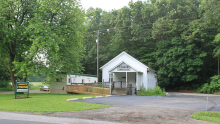Find FTTH Funding On Summer Ballot In Lyndon Township, Michigan
In August, voters in Lyndon Township, Michigan, will decide whether or not they want to approve a plan to invest in publicly owned fiber optic Internet infrastructure.
It’s All In The Mills
Voters are being asked to approve a millage increase of 2.9 over a 20-year period. In other words, property taxes will increase approximately $2.91 per $1,000 of taxable value of a property. Those funds will be used to fund a bond to finance the project; city leaders have already determined that the principal amount of the project will not exceed $7 million.
Once the infrastructure has been completed, the community plans to partner with one or more Internet Service Provider (ISP). Estimates for monthly millage bond costs and monthly cost for Internet access at 100 Megabits per second (Mbps) are approximately $57 for Lyndon Township’s average homeowner. Gigabit access will be available and will cost about $25 more each month.
If funding is approved, the community expects to finish the project and be using their new Internet infrastructure by the end of 2018.
Supported By Citizens
The issue of better connectivity in Lyndon Township isn’t a new one. At a meeting in March 2016, Township Board members voted 5-0 to fund a feasibility study. The Board had approached providers about improving connectivity in the area, but none considered an investment in Lyndon Township a good investment.
At the meeting, members of a broadband initiative started by local residents shared their stories. As is often the case, local residents described driving to the library or Township Hall to access the Internet because their own homes were unserved or connectivity is so poor. According to a Chelsea Update article, when the Board approved the feasibility funding, “[t]here was a vigorous round of applause from the crowd.”





